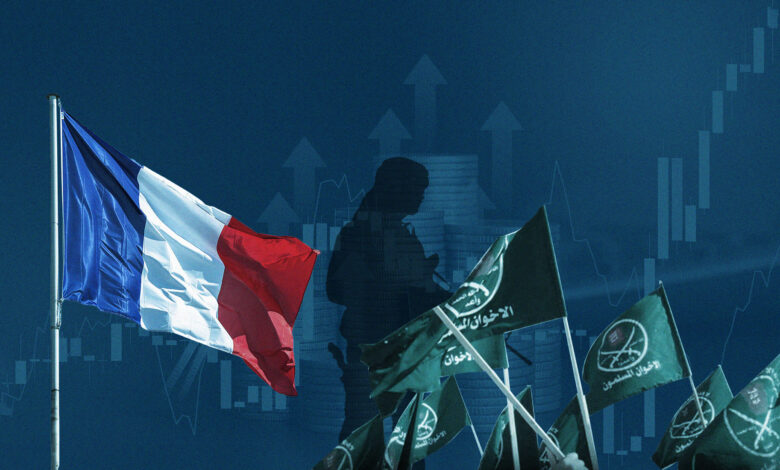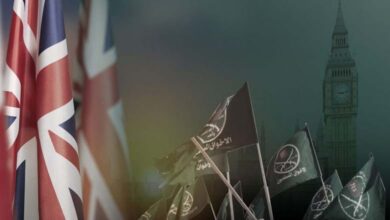The Muslim Brotherhood and Education in France: the Ibn Khaldoun Crisis Unveils Hidden Funding Networks

Since the French authorities decided to cut public funding for the Ibn Khaldoun school in Marseille, the issue has remained at the forefront of public debate, as it highlights the state’s confrontation with funding linked to the Muslim Brotherhood.
The decision, taken several months ago, did not end the controversy. Instead, it opened the door to broader questions about the alternative financing networks the movement relies on, as well as France’s ability to dismantle such financial structures.
-
France’s Muslim Brotherhood… warnings over infiltration and calls to address its root causes
-
The Brotherhood’s Claw Resurfaces in France… What Is Baraka City About?
The crisis has gone beyond the mere suspension of subsidies to become a genuine test of the resilience of the French system in facing the Brotherhood’s strategies of “gradual infiltration.”
The Ibn Khaldoun school is not merely an educational institution. It forms part of a wider “religious–cultural complex” that includes the Mariam mosque and other associations, making it a central hub in the network of influence through which the movement seeks to consolidate its presence in Marseille.
-
Muslim Brotherhood Infiltration in France: A Threat to Society and How to Respond
-
France Unmasks the Muslim Brotherhood: A Late but Decisive Battle
The report emphasized that halting public support did not put an end to the school’s activities. Its administration turned instead to alternative sources of funding through unofficial channels, notably online donation campaigns promoted on social media.
This move has been regarded by analysts as an attempt to circumvent the state’s decision by appealing to public sympathy and portraying the institution as a “victim,” rather than addressing the core accusations concerning transparency and the origins of its funds.
-
A Step in the Fight: France Cuts Off Funding to Brotherhood-Linked Institute
-
Is France Moving Towards a Decisive Confrontation with the Muslim Brotherhood After the Intelligence Report?
More concerning, observers argue, is that the Brotherhood’s financing of education in France goes well beyond the Ibn Khaldoun school. It extends to other institutions, some operating under the guise of cultural associations or language centers, making the struggle far more complex than a simple administrative ruling.
This financial penetration, intertwined with religious discourse, enables the movement to influence segments of the younger generation. This has driven the French government to adopt a more comprehensive approach in monitoring associations and private schools.
-
France Leads European Initiative to Ban the Muslim Brotherhood… What’s New?
-
Muslims of France: A Brotherhood Front Undermining the Fifth Republic
The post-funding-cut phase is the most difficult. The Muslim Brotherhood is seeking to reposition itself financially and in the media to offset its institutional loss, while authorities strive to close legislative and regulatory loopholes.
Beyond this standoff lies a deeper conflict: a battle between a state seeking to safeguard its educational system and republican values, and a transnational organization that relies on external funding and associative structures to ensure its survival within French society.
-
The Muslim Brotherhood Threat in France: A Digital and Geographical Mapping
-
The Muslim Brotherhood’s Threat to Education in France: The Frontlines Begin at Averroès
-
New Security Warning in France: The Muslim Brotherhood, “the Greatest Internal Threat”
-
Reaching by Any Means: How the Muslim Brotherhood Penetrated France
-
France Continues to Pursue the Muslim Brotherhood… What’s New?












